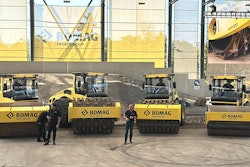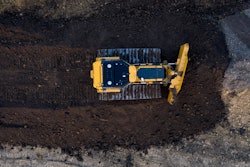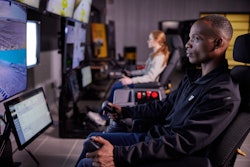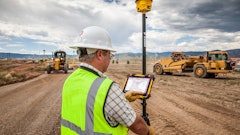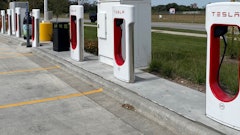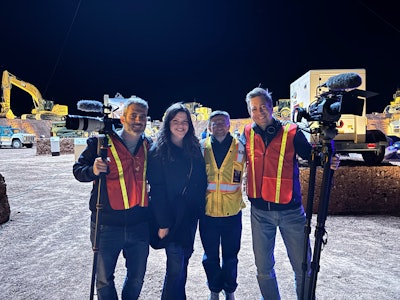
Throughout the last several decades, software and technology innovations have taken construction — a historically tech-averse industry — to new horizons. From refining back-office operations to improving equipment performance, today’s tech is not only challenging the way the industry is accustomed to doing things, but also ushering in a new generation of tech-savvy contractors.
While the industry may still in the process of embracing all of the many technologies available for use throughout a construction firm’s operations — business software, drones, GPS, telematics, machine control, augmented and virtual reality (AR/VR), building information modeling (BIM), digital twins, equipment simulators, wearable IoT devices, artificial intelligence (AI), autonomous vehicles, robotics, and more — it’s interesting to see how the buy-in and balance continues to shift from traditional practices toward more technology-forward endeavors.
Deloitte shared in its 2025 Engineering and Construction Industry Outlook, “As companies continue to grow their spending and investments, technology can be explored in almost every aspect of operations. The wide adoption of drones, for instance, is facilitating precise surveying even when surveyors are not physically present.” For contractors, though, is tech an exciting prospect or a threat? Or both?
According to a 2024 Workforce Survey Analysis conducted by the Associated General Contractors of America (AGC) and workforce management software company Arcoro, “Contractors have mixed expectations regarding the impact of technologies such as robotics and AI on construction jobs. A majority believes these technologies will positively impact construction jobs, either by automating manual, error-prone tasks (29% of respondents) or by improving the quality of those jobs and making workers safer and more productive (28%). But a third of respondents expects no effect on construction jobs and 10% believe the impact on the construction job market will be negative, by eliminating jobs.”
Conversely, a recent Forbes article highlights technology’s potential for construction industry job creation, “[The] integration of advanced technologies in construction is leading to the creation of new job roles, some of which include Robotic Equipment Operators, who oversee machines such as autonomous bulldozers, cranes and excavators on construction sites, and AI Architects, who design intelligent systems for automating construction processes and improving efficiency.”
For the hiring managers and applicants in the construction job market, will “skilled labor” now also mean “tech-skilled labor?” Prerequisites for these types roles might look different from those on a typical construction professional’s résumé, though they do open a world of new possibilities.





